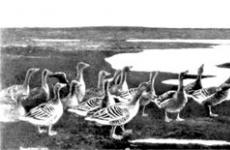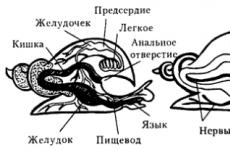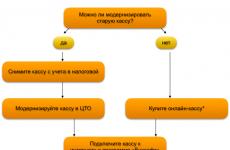Cottage cheese is a product useful for restoring male potency. Why cottage cheese is useful for men: the benefits of cottage cheese, a positive effect on the body, recipes, calories, indications and contraindications Cottage cheese helps
This popular sour milk product known to mankind since time immemorial. For centuries, people have been using it in food. This product has a delicate pleasant taste and remarkable healing effect on the body. Its useful, healing properties are based on production technology. During the process of making cottage cheese, milk gives up its most useful components, including easily digestible protein, milk fat, and calcium.
Cottage cheese has an effective healing effect on the children's body, strengthening the skeletal system. Therefore, this fermented milk product must be included in the children's diet. It is also recommended for therapeutic
nutrition in diseases of the kidneys, stomach, intestines. It is very beneficial for heart health.
Also, the product is very useful for women's health. About how cottage cheese is useful for women, why it should be regularly included in your diet, I will now tell you. But first, let's take a quick look at its nutritional and healing composition:
Composition of the product
We have already mentioned its constituent useful components. For example, the milk protein casein. It gives the product more nutritional value, therefore, it can completely replace animal proteins that are difficult to digest by the body. Since the product is very nutritious, 200-300 g of cottage cheese per day is enough for the body.
In addition to casein, cottage cheese contains many valuable minerals. For example, a lot of calcium, which strengthens the skeletal system.
The amino acids which are a part of a product serve as prevention of diseases of a liver, protect nervous, cardiovascular system. A large amount of B vitamins will help the body protect itself from atherosclerosis. This fermented milk product contains many more vitamins, it is almost completely absorbed by the body.
How is cottage cheese good for women's health?
Cottage cheese is needed by the female body throughout the life of a woman. For example, from early childhood, cottage cheese strengthens the bones of a child, helps the proper formation of bone and cartilage tissue. Girls also need it, as it saturates their body with substances that contribute to harmonious physical development, strengthen hair, nails, and are responsible for dental health.
Young women also need it. But especially its value increases during pregnancy and when breastfeeding a baby. After all, during these periods of life, the mother has to provide useful substances not only for herself, but also for her child.
However, if you start eating for two, you can get weight problems, increase the load on the gastrointestinal tract, other organs and systems. That is why a woman's nutrition during these periods should be light, but nutritious and healthy. This is where cottage cheese comes to the rescue again.
With the onset of a certain age, with the advent of menopause, the female body is increasingly lacking in calcium. Often a persistent deficiency of this element is formed, from which the female body suffers. This makes hair and nails brittle. And most importantly, a lack of calcium can provoke such a dangerous disease as osteoporosis.
In addition, the lack of this element negatively affects not only physical, but psychological health. For example, mood worsens, irritability increases, etc.
After forty years, women significantly increase the need for this mineral. But it is not always possible to make a complete adjustment of your diet due to changed physiological norms. Therefore, to eliminate calcium deficiency, middle-aged and older women need to eat a small portion of fresh cottage cheese daily.
Cottage cheese is useful for older women, as it helps to solve the problem of high cholesterol. The amino acids choline and methionine, calcium, phosphorus included in the product strengthen bone tissue serve to prevent atherosclerosis.
What else is cottage cheese good for?
This fermented milk product must be consumed by all people with diseases of the heart, liver, kidneys, as it has the ability to remove excess fluid from the body.
The beneficial substances contained in it are important for the normalization of metabolic processes, and serve to prevent obesity. Iron, which is part of the product, helps maintain the required level of hemoglobin, which prevents the development of anemia.
If you are trying to lose weight, are overweight, it is better to buy fat-free cottage cheese. It is generally a dietary product, so it is often included in a variety of diets, it is one of the components of fasting days.
Important!
You need to understand that only a fresh product can bring health benefits. Therefore, when buying, carefully look at the production time. If the product is expired, leave it on the counter. This will save you from negative consequences in the form of indigestion or poisoning. A real, natural product cannot be stored for more than 2-3 days.
Despite the fact that cottage cheese is very useful, it should not be abused. No need to eat more than 200 g of the product per day. However, it also contains animal fats. If they enter the body in large quantities, there is a danger of clogging the hepatic ducts. Therefore, try to consume low-fat varieties and no more than one serving per day. Be healthy!
Cottage cheese is very valuable, which mankind has been using with pleasure for many centuries. It contains much more nutrients than milk. We learn about the composition and benefits for the body, how best to use and what are the contraindications.
What is the richness of the popular fermented milk product
Cottage cheese is a source of healthy dairy, and. First of all, it has a lot, and. Vitamins valuable for the whole organism are also included in its composition. 
This fermented milk product is very tasty and nutritious, contains a lot of calories (in 100 g fat cottage cheese 230 kcal), but at the same time easily digestible, is included in the diet of people who prefer a healthy diet. Nutritionists recommend including it in different diets.
Benefits for the body
The use of cottage cheese has a beneficial effect on the formation and condition, strengthens teeth. Doctors recommend it for diseases of the heart, kidneys, lungs, gastrointestinal tract.
Valuable and indispensable for the body amino acids, which are part of milk protein, can replace animal protein in their properties. These amino acids have a beneficial effect on the state of the liver, prevent its obesity.  And, which are part of the product, contribute to the prevention and disease nervous system. It is recommended to use it for chronic gastritis, gallbladder diseases and other problems of the gastrointestinal tract, as well as hypertension and heart disease.
And, which are part of the product, contribute to the prevention and disease nervous system. It is recommended to use it for chronic gastritis, gallbladder diseases and other problems of the gastrointestinal tract, as well as hypertension and heart disease.
Important! You can not eat cottage cheese in large quantities: it contains a lot of protein, which puts an additional burden on the work of the kidneys.
men
The main benefit for the male body is the use of milk proteins, which are rich in cottage cheese. Proteins contribute. All athletes include this healthy and nutritious product in their diet. Men who do physical labor should consume dairy products.
Women
For women, cottage cheese is useful as a source of calcium and useful. Calcium makes strong and healthy hair, teeth, nails. Low-fat product reduces the level and strengthens the bones.  It improves the condition of the reproductive system and helps to cure menstrual irregularities.
It improves the condition of the reproductive system and helps to cure menstrual irregularities.
A large amount of vitamins has a beneficial effect on nervous system.
Pregnant women it is especially recommended to include cottage cheese in your diet. It will bring great benefits to the body of a woman and a child, replenishing the reserves of vitamins, calcium and protein. The developing fetus will receive all the necessary nutrients, bones and other organ systems will form.
After the birth of a child during lactation It is very useful for women to use it daily.
Did you know? Milk protein in its nutritional properties is not inferior to the animal. The daily norm of protein necessary for a person is contained in 300 g of cottage cheese.
Children
For children, cottage cheese is one of the healthiest foods. Scientists have proven that it increases the production of growth hormone. For a child's body, it is necessary to receive a sufficient amount of protein, calcium and vitamins. A growing body requires wholesome food for the formation of all systems, and a fermented milk product is perfect in all respects.
It is easily absorbed and digested, quite nutritious.
Children can be given it from six months, it helps to form healthy teeth and prevents the development of rickets. 
Fat free or oily
Cottage cheese is fatty - with a fat percentage of more than 5%, low-fat - with a fat percentage of less than 2%, and fat-free - 0% fat.
Find out which product brings more benefits to the human body. Many people, especially dieters and those who want to lose weight, believe that there is more benefit in a low-fat product.
But this is not so - the fat-free type loses some of the nutrients and vitamins during the degreasing process. In such a product, vitamins A, E, D are poorly absorbed and lose their useful qualities, as they are fat-soluble. In this chain, in turn, without vitamin D, calcium is poorly absorbed.
A very fatty look can also be harmful to the body if consumed frequently and in large quantities. A large amount of fat increases the level and puts an additional burden on the digestive organs and liver.
Nutritionists believe that low-fat cottage cheese is the most useful. 
What time of day is best to use
Cottage cheese can be consumed at any time of the day, but since it is quite nutritious and rich in protein, it is perfect for a full-fledged one. This useful product relieve hunger for a long time and give you a boost of energy. Milk protein is processed by the body for a long time.
Many nutritionists and doctors advise eating not very fatty cottage cheese for dinner, it contains an amino acid that calms the nervous system, helps faster, and. A fatty product in the evening puts a strain on the pancreas.
Important! Athletes, bodybuilders consume nutritious cottage cheese one and a half hours before the start of training and half an hour after it.
For young children are the main in the diet, a growing body needs a lot of calcium, protein and vitamins. Cottage cheese can be given to children several times a day, including in the evening, because it stimulates the production of growth hormone. There is an opinion that calcium is better absorbed in the afternoon.
With what to eat
The benefits of a fermented milk product increase many times in combination with fresh
You can not abuse cottage cheese. If you are a lover of this fermented milk product, and it is included in your daily diet, then portions should be small - about 100 g. It is advisable to use it three times a week.
A fatty product in large quantities can cause obesity, high cholesterol and atherosclerosis. Too much protein can cause kidney problems.
Cottage cheese spoils quickly, it must be consumed fresh and stored properly. Otherwise, dangerous microorganisms develop in it and coli, which can cause serious disorders and diseases of the gastrointestinal tract.  When buying, you need to carefully look at the expiration date, store in a pressed form without air access in an enamel or glass container.
When buying, you need to carefully look at the expiration date, store in a pressed form without air access in an enamel or glass container.
Did you know? In ancient times, when there were no refrigerators, cottage cheese was stored in clay pots after a special heat treatment in an oven.
Cottage cheese, without a doubt, is very valuable and useful, in addition to its taste. Useful substances and vitamins make it possible for many systems and organs of a person of any age to develop and function normally. The main thing is not to abuse it, because even the most useful product in large quantities can be harmful.
The benefits and harms of cottage cheese
Cottage cheese is a product that is obtained by fermenting milk and separating whey.
The curd mass is well absorbed by the body, saturates the body with calcium, phosphorus, improves the functioning of the heart and blood vessels. Cottage cheese is homemade, fat-free, goat and grain.
The use of cottage cheese

The dairy product contains a large amount of protein. Many housewives are happy to cook the curd mass at home: they use it as a sweet filling for pies, cheesecakes, cheesecakes, or simply eat it as an independent dish.
Small children adore cottage cheese mixtures with sugar. Jam, fresh berries, honey, fruits are added to the mass, stuffed with salted cottage cheese mixed with green pasta shells, juicy dumplings or nut rolls are prepared.
Tender granular mass is a low-calorie dish that is recommended by many nutritionists. Fat-free 0% cottage cheese contains 71 kcal, and a 1% fat product contains 159 calories per 100 g.
Composition of cottage cheese:
- Proteins fats carbohydrates;
- Vitamin B1, B2, B5, B6, B9, B12;
- Choline.
The composition of the fermented milk product also includes a large number of substances important for the body:
- Phosphorus;
- Selenium;
- Calcium;
- Cobalt;
- Magnesium;
- Copper;
- Zinc;
- Potassium;
- Iron;
- Fluorine;
- sodium and others.
The benefits of cottage cheese for the body
Regular consumption of curd products restores vision, improves the condition of nails, teeth and hair.
The benefits of cottage cheese for men
Men should definitely include granular cottage cheese in the menu. Casein protein affects the active growth of muscle mass and stimulates the reproductive system.
When mixed with any other products, the curd mass reduces the negative impact of spicy food on the body.
Mono-diet on cottage cheese helps to lose weight without unnecessary stress on the body (as you know, most diets cause stress).
Regular consumption of the product reduces the level of cholesterol in the blood, strengthens the immune system. The fermented milk miracle is able to protect the cells of the body from cancerous tumors, including breast cancer.
Cottage cheese grains are used for cosmetic purposes for the face or as a remedy for dandruff. It is especially important to eat a curd product for older people - with age, bone tissue becomes too fragile.
For pregnant women, cottage cheese is vital, because the fetus in the womb needs a large amount of easily digestible casein protein.
For the preparation of cottage cheese, it is better to use goat's milk - it practically does not cause allergic reaction and as close as possible in composition to breast milk.
Fat-free curd mass is absorbed worse, so you should choose a medium-fat product or cook it yourself.
Curd mass with sweet additives in the form of berries, dried apricots or raisins sharply adds calories. Fat content directly depends on the products used: full-fat cream (23% - 232 cal) or skim milk play a major role in the choice. The curd mass contains a large amount of essential acids, beneficial prebiotics and biologically active compounds.
Fat content of cottage cheese
- Bold from 18%;
- Medium fat - 9%;
- Fat-free - 2% and below.
Eat cottage cheese mass for breakfast or lunch - in the evening limit yourself to a light salad and a glass of kefir for better digestion.
Harm of cottage cheese

The daily norm of a fermented milk product is not more than 200 g. Children from the age of seven months are allowed no more than 50-60 g per week.
Overeating is fraught with swelling in the legs, a sharp increase in cholesterol in the blood, and kidney problems may occur. Fermented milk products are prescribed with caution for gastric diseases, urolithiasis.
Just like all products, cottage cheese can cause an allergic reaction or individual intolerance.
You should not use stale mass for food, remember that real cottage cheese is only in a crumbly form, and not in packaged briquettes with a mixture of condensed milk or fruit filler.
How to determine the freshness of a fermented milk product
For children, 2% weight is more suitable, for pregnant women 9%, and 22% weight is more often bought for cooking.
Do not buy colored, tightly closed briquettes. The consistency inside the package should be clearly visible. Don't forget to check the expiration date on the container.
pay attention to appearance grains: snow-white, crumbly balls with a slight, yellowish tint indicate that natural milk was used.
A pleasant milky-yeast aroma should also be present. The taste should not be sour.
Few products can boast such an impeccable reputation. Cottage cheese is used all over the world. Doctors unanimously recommend it to both the sick and the healthy. Many are sure: cottage cheese is a benefit, and harm from it never happens to anyone. Is this true, and what does it give the body?
Needs no advice, but still! Once again about the beneficial qualities of cottage cheese
The health value of cottage cheese is predetermined by its manufacturing technology and composition. It contains only two components - milk and bacteria, which provide fermentation.
What gives the body such food? Proteins, vitamins A, E, D, K, nicotinic acid, the entire set of B-groups, a number of essential amino acids - valine, tryptophan, lysine and others. Together with a portion of such "sour milk" we eat quite a lot of calcium, phosphorus, iron, selenium, potassium, manganese, sodium, molybdenum.
Unlike many other products, the daily use of cottage cheese will benefit the body, and such a component on the menu will not harm either adults or children. It is indicated at any age, and the elderly are simply necessary, allowed for pregnant and lactating women.
Medicinal properties of cottage cheese:
- strengthen and restore bone tissue and ligaments;
- make up for the lack of calcium in expectant mothers;
- protect the elderly from osteoporosis;
- prevent fatty degeneration of liver cells, as it balances metabolic processes and blocks morbid obesity;
- improve the state of the nervous system, positively affect the transmission of impulses;
- will have a beneficial effect on memory, intellectual abilities, cheer up;
- slow down the development of Parkinson's and Alzheimer's disease;
- fully cover the body's need for protein;
- normalizes the hormonal background;
- increase immunity;
- raise hemoglobin.
Curd on guard of the heart
This sour-milk "delicacy" is indicated for cardiovascular pathologies, when the body feels a deficiency of magnesium, potassium, and phosphorus. The benefit of cottage cheese for the heart is that it will supply methionine to the body. In combination with vitamin B6, this amino acid normalizes cholesterol metabolism and improves the absorption of vegetable proteins.
Another valuable amino acid, lysine, helps restore myocardial cells and maintains normal vascular tone. Cottage cheese is rich in protein, therefore it increases the efficiency of the heart muscle.
Hypertensive patients must eat 100 g of such a low-fat product daily or 250 g per week.
Isn't it better for a man?

This nutritious product is essential for men. What is the benefit and harm of cottage cheese for their body? In addition to the above therapeutic actions It will help in building muscle mass. Its protein (casein) is absorbed slowly by the body, so the muscles will grow not only during training, but even during sleep. So this fermented milk product is a godsend for those who want to acquire athletic forms.
If a man dine with cottage cheese, there will be no harm from this, but only benefit. After all, this product improves sexual potential and improves the quality of sperm.
How much fat - so much good?
Today, many, especially vegetarians, athletes and losing weight, include low-fat cottage cheese on the menu. Experts evaluate its benefits and harms to the body in different ways. It is 80% water. Contrary to the misconception, the absence of fat (its amount varies from 0 to 0.6%) does not mean that it has 0 calories. Their number reaches 86-105 kcal per 100 gram serving.
The fat-free product has positive aspects. It contains complete proteins (up to 16%), milk sugar, amino acids, it retains some of the vitamins that ordinary cottage cheese has, but vitamins A, E, D are much less. The disadvantage of "zero" is that a low amount of fat adversely affects the absorption of calcium.
From whole milk, the most valuable fat cottage cheese is obtained in terms of health-improving characteristics. How do its benefits and harms compare? Unlike the fat-free “brother”, it contains at least 18% fat and about 65% water. In terms of calories, this product overtakes beef. On average, it contains 253 kcal. It is very nutritious, rich in minerals, and its fat is absorbed by 90-95%.

When it comes to dangerous foods, anything but cottage cheese comes to mind. . When it is fresh, of high quality and natural, it is not even capable of an allergic reaction, moreover, it helps to eliminate allergies. The inclusion of cottage cheese in the menu will be beneficial, but there is still a possibility of harm, although minimal.
Three dangers that cottage cheese can carry:
- Risk of poisoning. Curd is a perishable product. If improperly stored, it develops pathogens, including those that can cause botulism. You should always pay attention to the appearance, smell of the product and check the expiration date. If 5-7 days have passed since its manufacture, then it is better not to eat such cottage cheese.
- Chance to get excess protein in the body. Too much protein harms the kidneys. To eliminate such a nuisance, but to satisfy the need for protein, you need to eat 100-200 g of cottage cheese per day. It is recommended to reduce its use for those who suffer from severe kidney damage or atherosclerosis.
- The likelihood of gaining extra pounds. Although such a fermented milk product is found in many diets for weight loss, fatty cottage cheese, with a calorie content of up to 260 Kcal, does not contribute to a slim figure.
Too sour cottage cheese can cause discomfort in people with high acidity of gastric juice and gastritis.
It is believed that the ancient Romans had prototypes of cottage cheese. Today cottage cheese is present in many national cuisines peace. In some countries, it is considered one of the varieties of cheese, and somewhere a separate product. It is actively used in clinical nutrition and in all kinds of diets. But, how to find out what are the benefits and harms of cottage cheese? However, first things first.
Composition and calories
In many ways chemical composition depends on the fat content of the product, as well as its calorie content. The calorie numbers are something like this:
- Fat contains 226 kcal per 100g.
- Bold is 156.
- Low fat - 86 kcal.
- In fat-free cottage cheese - 70 kcal.
It is worth noting that cottage cheese is considered fat with 19% fat per 100g, in bold - 1-18%, in non-fat - a maximum of 3%. Carbohydrates here are represented by lactose, proteins contain from 14 to 18 g. The vitamin composition of cottage cheese is also rich. Yes, there is:
- retinol;
- beta carotene;
- riboflavin;
- thiamine;
- nicotinic acid;
- tocopherol (exclusively in fatty cottage cheese);
- ascorbin;
- cyanocobalamin (where the fat content is high);
- folic acid (not present in low-fat cottage cheese).
The mineral composition of the dairy product is also luxurious. Yes, there is:
- iron;
- calcium (cottage cheese is one of the champions in its content);
- sodium;
- phosphorus in large quantities;
- magnesium;
- zinc (only in fatty cottage cheese);
- potassium;
- fluorine (only in fatty forms);
- copper (only in fatty cottage cheese).

Useful properties of cottage cheese
One of the main advantages of cottage cheese is that it is easily and quickly digested, because this product lacks both cellular and tissue structure, which distinguishes it from animal proteins. Proteins are not only abundant here, but they are also well balanced due to their denaturation. In addition, casein itself is easier to digest than animal proteins. When using cottage cheese, much less gastric juice, enzymes and hydrochloric acid are released than when using other fermented milk products.
There is also a lot of methionine, that is, an essential amino acid that has a lipotropic effect. Methionine not only lowers the level of "bad" cholesterol, but also prevents the development of fatty liver. This problem can occur, for example, when taking certain medications and when strong toxins act on the body. When taking anabolic steroids to treat certain ailments, this dairy product is a must.
Another value of it lies in the abundance of calcium, which, like proteins, is easily absorbed by the body. And it's not just bones, hair, nails and teeth. This fermented milk product is a medicine for the treatment of rickets and ailments of the musculoskeletal system, after fractures, in addition, it restores cartilage tissue. It also has a positive effect on nerve tissue.
This product is simply necessary for diseases of the heart, blood vessels, blood and hematopoiesis. Cottage cheese must be in diets for the treatment of liver ailments, hypertension, atherosclerosis, tuberculosis.
As a dietary product, it is also used in the treatment of gastrointestinal ailments. These are ordinary gastritis, and ulcers, and intestinal ailments, and pancreatitis, and all diseases of the gallbladder or liver. In addition, the product also contributes to the removal of excess urine from the body, therefore it is recommended not only for hypertension, but also for diabetes and kidney ailments, as well as for all kinds of edema.
But ethnoscience came up with a way to use it externally. So, with bronchitis and pneumonia, it is recommended to make a honey-curd compress at night. It is laid on the back and secured with paper and a warm cloth.
Harm of cottage cheese
An ideal product for a diet can, in some cases, do harm. For example, it is definitely not suitable for people who have lactose intolerance. It is not recommended to abuse this product for kidney ailments: there are too many proteins that load this paired organ.
Fatty types of cottage cheese are not recommended for those who suffer from or atherosclerosis. Well, of course, it is forbidden to eat spoiled cottage cheese, which has expired: at the store it does not exceed 5 days, at home - no more than a day and a half. Delay can provoke intestinal infections.

Types of cottage cheese
Varieties of cottage cheese differ not only in fat content, but also in other criteria. So, according to the method of preparation, cottage cheese can be divided into two types:
- Acid-rennet, in the manufacture of which pepsin is used (rennet can be used) and lactic acid bacteria, more precisely, their starter cultures.
- Acid. Here, only starter cultures are used to fold the protein. It is usually made from skimmed milk.
Fat-free cottage cheese: benefits and harms
Fat-free cottage cheese is no less useful than any other. There is phosphorus, and calcium, and proteins. But there are some subtleties.
It cannot actively harm health, but a reduced percentage of fats makes it less possible to fully absorb the same calcium and proteins. So, calcium is poorly absorbed without fat-soluble vitamins, which are almost absent in this product. And finally, there is not much cephalin and lecithin here, which are involved in many processes in the body, for example, in the transmission of a nerve impulse.
In addition, the taste of such cottage cheese is not very expressive. It's not terrible, but manufacturers improve it with nutritional supplements. Not all of them are useful.
Albumin cottage cheese: benefits and harms
This is a secondary raw material of cheese making, it is prepared from cheese whey and enriched with albumin protein. There are no fats, only 2 g of carbohydrates, but a dozen and a half names of microelements and macroelements. The product is easily digested, has a positive effect on metabolism and immunity. Helps to remove cholesterol and maintain water-salt metabolism, ideal for overweight people.
It can be harmful if expired, or for people with kidney problems: in this case, its amount is reduced to 400 g per day.
Grain cottage cheese: benefits and harms
Its benefits and harms are identical to any other type of cottage cheese, but it spoils more slowly than normal and is larger in volume. However, do not joke with the shelf life of the product.
Frozen cottage cheese: benefits and harms
When frozen, this product does not lose its beneficial and harmful properties, but it must be frozen and thawed correctly:
- The “correct” freezing temperature is from 18 degrees below zero.
- You need to freeze in small portions, you can not use plastic bags.
- You can store up to two months.
- It is better to defrost in the refrigerator - it will take about half a day, but this way you will not lose beneficial features product.
- After defrosting, squeeze the product lightly.
- It is better not to freeze cheese masses and sweet curds.
Goat cottage cheese: benefits and harms
This product is distinguished by a large amount of vitamins B 2 and B12, rich in magnesium and copper. By the amount of protein, it is close to meat, but less calorie. The product is mandatory for use by patients with osteoporosis.
It can become harmful only when consumed in excess: there are a lot of saturated fatty acids, and they lead to weight gain. Abuse of the product can also lead to an increase in cholesterol levels.
Homemade cottage cheese: benefits and harms
If you made cottage cheese with your own hands, then you are confident in the quality of the products from which it was prepared. And this is a big plus. Homemade cottage cheese is no less useful than store-bought options.
But it can be harmful if the expiration date has long expired. You can store it for only 36 hours. Spoiled cottage cheese can provoke vomiting and nausea.
Cottage cheese from powdered milk: benefits and harms
Powdered milk, and hence the cottage cheese from it, retains all its beneficial properties. The only feature is that the product has reduced fat content.
Harm is possible only if low-quality milk powder or its dubious substitutes were used in the preparation.

Combination with other products
Cottage cheese goes well with both sweet and cinnamon. But we will talk about the most famous combinations.
With honey. Cottage cheese is good because it gives the body an infinite amount of vitamins, microelements and macroelements and helps the immune system to work.
Harm is possible only if honey is of poor quality, you are allergic to it, or you abuse honey: this is also excess sugar in the blood.
With sour cream. Together, they will not only provide calcium to even the most growing body, but are generally capable of much. Sour cream is very rich in useful elements, including biotin, beta-carotene, phospholipids, phosphorus, magnesium, calcium, zinc and potassium. This dish is simply necessary for young children whose musculoskeletal system and teeth are being formed.
Since sour cream is rich in fats, it is better to limit it to people who are prone to fullness and suffering from vascular diseases.
Cottage cheese with linseed oil. These are products made for each other. Flaxseed oil is a luxurious source of linoleic, linolenic and oleic acids. Proteins allow them to be better absorbed. And the acids themselves help the rapid absorption of all the nutrients from the cottage cheese. This mixture will help to lose weight and normalize the work of the female genitourinary system.
Harm is possible if you have chronic pancreatitis or cholecystitis. The mixture is not recommended for "female" cancers. Well, the oil must be fresh.
Cottage cheese with sugar or jam. Here we are talking about improving the taste of cottage cheese. And if jam is fruit, which means some vitamins, then sugar will only add calories and provoke weight gain. But you can replace them with dried fruits or marmalade.
For the male body
Cottage cheese, especially albumin - The best way build muscle without dangerous chemicals. Therefore, athletes need to pay close attention to it.
Benefit and harm to a woman's body
Cottage cheese is not only a source of beauty. It will help fight bone thinning during menopause, establish menstrual cycle, but also to overcome frigidity. Without fail, expectant mothers need it, but also nursing ones too.
Cottage cheese for children
Often this is the very first complementary food. And the most needed. For children whose skeleton and molars are just being formed, this product is simply necessary. Schoolchildren need it to maintain brain function and intellectual development.
Cottage cheese can be harmful to children only if it is intolerant, if it is a poor-quality product (remember that it is easier for a child to get poisoned) and if there are problems with the kidneys.
For people aged
With age, when the lack of calcium is more and more noticeable (and these are permanent fractures and injuries), you need to include this product in your menu. And even if they never loved him.
It is important to remember that in adulthood, the metabolism slows down. In order not to burden the body, older people are better off eating low-fat types of cottage cheese.
Cottage cheese for weight loss
Cottage cheese is an important component of many protein (and not only) diets. It perfectly saturates and does not allow you to eat too much. But do not abuse it - an excess of protein leads to serious metabolic disorders and liver diseases.
conclusions
Cottage cheese is a product that can be called a buzzword superfood. There is a sea of minerals and vitamins, as well as protein that is easily digestible. But all this applies only to high-quality cottage cheese. Also, don't overuse it. And finally, you should not choose the most low-fat types of it: in this way you deprive yourself of many vitamins.






